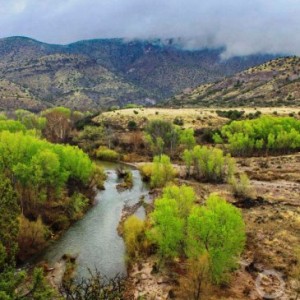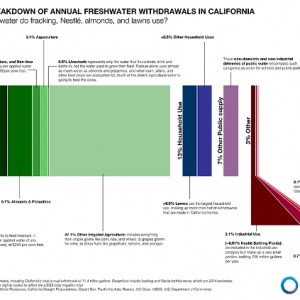The Stream, May 13: Nepal Monsoon Rains Bring More Safety Concerns
The Global Rundown |
Monsoon rains mean an increased likelihood of landslides in Nepal as communities recover from the earthquake. Queensland, Australia, is suffering its most widespread drought in history, while residents in Colombia are using plastic bottles to build cisterns. Enbridge agreed to pay Michigan millions in an oil spill settlement, and the U.S. House of Representatives voted against the new Clean Water Rule. Ethiopia will use hydropower to increase energy exports as part of a regional initiative.
“It’s not safe here. Last night, it was raining hard the whole night and I couldn’t sleep. I’m always worried another landslide will come.”–Ram Tamang, a resident of Nepal, on the dangers communities face following a major earthquake last month. Officials worry that approaching monsoon rains will create more landslides, which can also block river flows and cause flooding. (Reuters)
By The Numbers |
80 percent Land area declared to be in drought in Queensland, Australia, making this the state’s most widespread drought on record. Guardian
$75 million Settlement amount Canadian energy transport company Enbridge agreed to pay the state of Michigan, five years after one of the company’s pipelines spilled millions of liters of oil into the Kalamazoo River watershed. Associated Press
261-155 U.S. House of Representatives vote in favor of legislation that would revoke the Environmental Protection Agency’s proposed Clean Water Rule. The Hill
Science, Studies, And Reports |
An inexpensive cistern created from discarded 3-liter plastic bottles is helping residents in Colombia store rain water in areas that have traditionally experienced unreliable water supplies. Use of the system is also spreading to places like Guatemala and Mexico. Miami Herald
On The Radar |
Ethiopia will become a larger exporter of renewable energy in East Africa by 2018 as part of the East African Power Pool initiative. The country plans to produce much of its exports through hydropower, including power generated at the new Gibe 3 dam on the Omo River. Reuters
A news correspondent for Circle of Blue based out of Hawaii. She writes The Stream, Circle of Blue’s daily digest of international water news trends. Her interests include food security, ecology and the Great Lakes.
Contact Codi Kozacek







Leave a Reply
Want to join the discussion?Feel free to contribute!